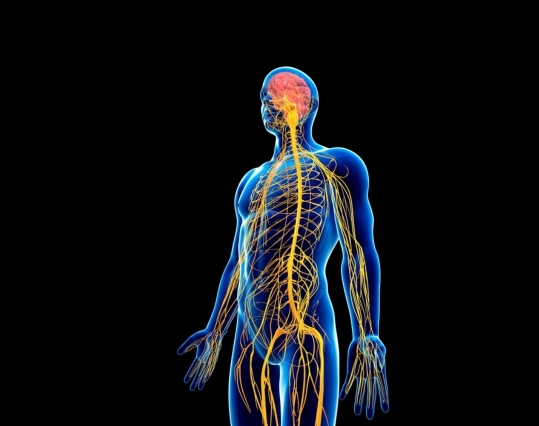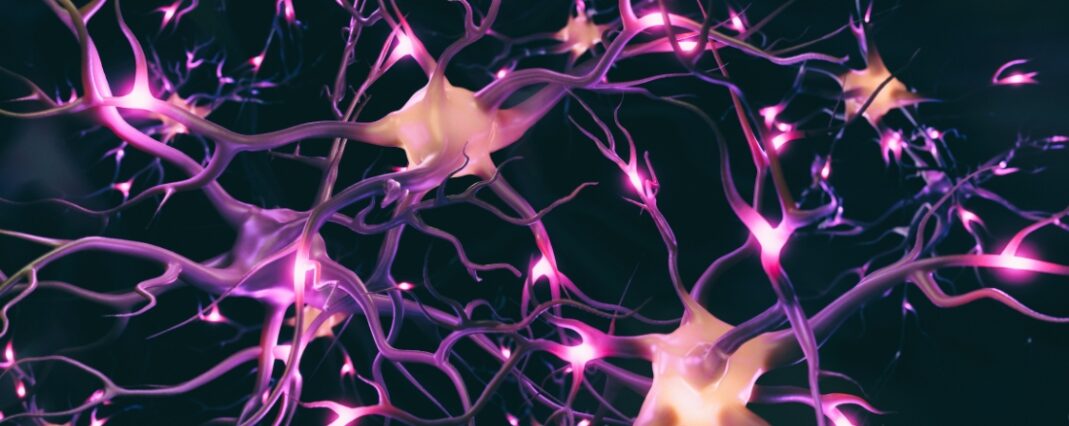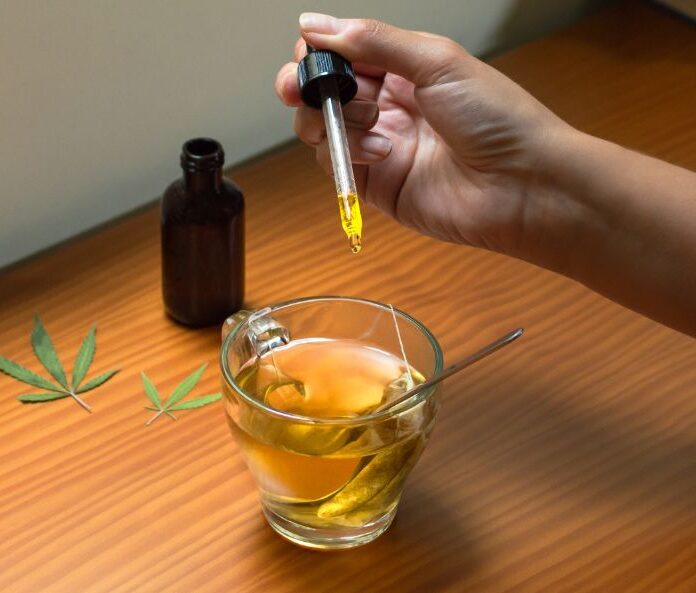When you consider your overall well-being, do you think about the intricate workings of your body that play a crucial role in maintaining balance and harmony? Enter the endocannabinoid system (ECS), a network of receptors and neurotransmitters that is receiving increasing attention in relation to CBD use. What exactly is the role of the ECS in CBD’s effects? How does CBD interact with this system to potentially offer a range of health benefits?
In this guide, we’ll explore the interesting relationship between the endocannabinoid system and CBD, shedding light on the mechanisms that may contribute to potential therapeutic effects, including pain relief, reduced anxiety, and improved sleep. So, let’s look at why CBD has become such a popular choice for those seeking holistic wellness.
If you’re ready to explore a premium range of CBD products, including CBD oils, CBD edibles and CBD vapes, take a look at The CBD Flower Shop’s online store.
Understanding the endocannabinoid system (ECS)
To fully grasp the benefits of CBD use, it’s vital to understand the endocannabinoid system. Also referred to as the ECS, it is essentially a complex regulatory system within the human body that is known to play a crucial role in maintaining homeostasis.
It consists of three main components:
- endocannabinoids
- cannabinoid receptors
- enzymes
Endocannabinoids are naturally occurring compounds that are produced by the body. They bind to cannabinoid receptors, which are found throughout the central nervous system and peripheral nervous system. These receptors are like locks, and endocannabinoids are the keys that fit into them. When endocannabinoids bind to the receptors, signals are sent to regulate functions such as mood, pain, and appetite.
CBD, or cannabidiol, is a phytocannabinoid found in the cannabis plant that interacts with the endocannabinoid system. It doesn’t directly bind to cannabinoid receptors but instead influences their activity. CBD is thought to modulate the endocannabinoid system by inhibiting the enzymes that break down endocannabinoids, allowing them to stay in the body for longer periods and exert their effects.
Key components of the endocannabinoid system
The key components of the endocannabinoid system (ECS) include endocannabinoids, cannabinoid receptors, and enzymes, which collectively regulate various physiological functions in the human body. Let’s take a closer look:
Endocannabinoids
Anandamide (AEA) and 2-arachidonoylglycerol (2-AG) have been identified as the two primary endocannabinoids. They function by attaching to cannabinoid receptors, triggering various physiological responses.
Cannabinoid receptors
There are two main types of cannabinoid receptors in the ECS, known as CB1 and CB2 receptors. CB1 receptors are predominantly situated in the central nervous system, while CB2 receptors are primarily located in the peripheral tissues and immune cells. These receptors are responsible for mediating the effects of endocannabinoids and external cannabinoids, such as CBD.
Enzymes
Enzymes play a crucial role in regulating the endocannabinoid system. They synthesise and break down endocannabinoids. Two crucial enzymes are involved in this process: fatty acid amide hydrolase (FAAH), which degrades anandamide, and monoacylglycerol lipase (MAGL), which is involved in the breakdown of 2-AG.
Endocannabinoid system components
The endocannabinoid system also includes other components, such as transporters and lipid signalling molecules. These components work together to maintain balance and homeostasis in the body.
CBD may help restore balance and promote overall wellness by interacting with the endocannabinoid system. Further research is needed to fully understand the complexities of the endocannabinoid system and its interaction with CBD, but the evidence suggests that it holds great therapeutic potential.
Exploring the therapeutic effects of CBD
How CBD interacts with the endocannabinoid system
CBD interacts with the endocannabinoid system through its relationship with cannabinoid receptors in the human body. When CBD enters the body, it can interact with ECS receptors, modulating their activity and influencing endocannabinoid signalling.
Studies have shown that CBD can act as a partial agonist of CB receptors, binding to these receptors and influencing their signalling pathways. CBD’s interaction with CB receptors can have various therapeutic benefits. For example, it has been found to have analgesic properties, reducing pain perception by modulating CB1 receptors. CBD also has anti-inflammatory effects, potentially through its influence on CB2 receptors.
Further research is needed to fully understand the mechanisms underlying CBD’s interaction with CB receptors and its impact on endocannabinoid signalling. However, current evidence suggests that CBD’s interaction with the endocannabinoid system contributes to its therapeutic benefits.


Potential therapeutic benefits of CBD through ECS interaction
The interaction between CBD and the endocannabinoid system holds significant therapeutic potential. When CBD interacts with the endocannabinoid system (ECS), it can profoundly impact various physiological processes in the body.
Here are key ways in which CBD’s interaction with the endocannabinoid system can provide therapeutic benefits:
Modulation of pain: CBD has been shown to interact with cannabinoid receptors in the ECS to modulate pain perception. This can be beneficial for individuals suffering from chronic pain conditions such as arthritis or neuropathic pain.
Reduction of inflammation: CBD has anti-inflammatory properties that can help reduce inflammation in the body. By interacting with the endocannabinoid system, CBD can inhibit the release of pro-inflammatory molecules, thereby providing relief for conditions such as inflammatory bowel disease or multiple sclerosis.
Anxiety and depression management: CBD has been found to have anxiolytic and antidepressant effects by interacting with the ECS. It can boost levels of anandamide, an endocannabinoid that plays a role in mood regulation, leading to a reduction in anxiety and depression symptoms.
Appetite and digestion: The endocannabinoid system regulates appetite and digestion. It helps to stimulate appetite when needed and regulates the release of digestive enzymes to ensure proper digestion and nutrient absorption.
Neuroprotective effects: CBD’s interaction with the ECS has shown promising neuroprotective effects. It can help protect neurons from damage and reduce neuroinflammation, making it a potential therapeutic option for neurodegenerative diseases.
Better sleep: The endocannabinoid system is also involved in regulating sleep patterns. CBD has been shown to interact with the ECS to promote better sleep quality and alleviate symptoms of insomnia.
Many turn to CBD as a natural wellness product for these potential benefits.
The significance of CB1 and CB2 receptors in CBD use
CB1 and CB2 receptors within the endocannabinoid system play a crucial role in mediating the therapeutic effects of CBD. Let’s explore the receptors further:
CB1 receptors: These receptors are primarily located in the central nervous system, particularly in the brain. They’re responsible for the psychoactive effects of THC, the main psychoactive compound in cannabis. CBD, on the other hand, doesn’t directly bind to CB1 receptors, but it can modulate their activity. This modulation may contribute to CBD’s potential therapeutic effects, such as reducing anxiety and improving sleep.
CB2 receptors: These receptors are mainly found in immune cells and peripheral tissues. They play a crucial role in regulating immune responses and inflammation. CBD has been shown to interact with CB2 receptors, leading to anti-inflammatory effects. This interaction may be beneficial in conditions associated with inflammation, such as arthritis and autoimmune diseases.
CBD’s indirect effects: CBD’s interaction with CB1 and CB2 receptors isn’t the only mechanism through which it exerts its therapeutic effects. It can also influence other cannabinoid receptor systems and signalling pathways in the body, such as serotonin receptors and TRPV1 receptors. These additional interactions contribute to CBD’s potential analgesic, anti-anxiety, and anti-inflammatory properties.
Individual variability: The expression and distribution of CB1 and CB2 receptors can vary between individuals. This variability may influence the response to CBD and explain why some people may experience different outcomes when using CBD products.
Understanding the significance of CB1 and CB2 receptors in CBD use is crucial for harnessing the therapeutic potential of CBD and developing targeted treatments for various conditions. Further research is needed to fully elucidate the complex interactions between CBD and the endocannabinoid system.
Do some CBD products interact more effectively with the ECS?
Some CBD products may interact more effectively with the body’s endocannabinoid system (ECS) due to various factors:
- Product type: The form of the CBD product (e.g., oil, tincture, edible, topical) can affect its absorption and interaction with the endocannabinoid system. For instance, sublingual tinctures might be more readily absorbed into the bloodstream than edibles.
- Full-spectrum vs. isolate: Full-spectrum CBD products contain a range of cannabinoids and terpenes that can create an “entourage effect,” potentially enhancing the overall impact on the ECS. In contrast, CBD isolates contain only pure CBD.
- Bioavailability: This refers to the degree and rate at which CBD is absorbed into the bloodstream. Products with higher bioavailability ensure more CBD reaches the ECS.
- Quality and purity: High-quality, pure CBD products without contaminants can interact more effectively with the ECS.
- Dosage and concentration: The amount of CBD and its concentration in a product can influence its effectiveness in engaging with the endocannabinoid system.
Each individual’s response to CBD can vary, so it’s essential to consider personal factors like metabolism, body chemistry, and the specific condition being targeted when choosing a CBD product.
Safety and considerations in CBD use and the ECS
To ensure the safe and effective use of CBD in relation to the endocannabinoid system, various factors must be considered, and potential risks and precautions must be understood.
The safety of CBD use relies on factors such as dosage, purity of the product, and individual differences in metabolism and tolerance. It’s recommended to start with a low dosage and gradually increase as needed, taking into account the desired effects and any potential side effects.
It’s also essential to pick cannabidiol products from reputable sources that provide third-party lab testing. Considerations should also be given to potential drug interactions, especially for individuals taking medication that’s metabolised by the same enzymes in the liver as CBD.
CBD has been shown to inhibit these enzymes, which could affect the metabolism and efficacy of certain medications. It is advisable to consult with a healthcare professional to assess any potential interactions and adjust dosages accordingly.
It’s also important to note that CBD use is generally well-tolerated, with few reported adverse effects. However, some individuals may experience side effects such as drowsiness, dry mouth, or changes in appetite. It’s essential to monitor for any adverse reactions and discontinue use if necessary.
Buy high-quality CBD products
If you’re looking to discover CBD’s potential benefits, look at our hand-selected range of premium CBD products, available in a range of strengths and flavours. From our award-winning CBD tea flowers to our vapes and oils, we’re confident you’ll find a product to suit your needs.
As a company focused on excellent customer service, don’t hesitate to contact us at The CBD Flower Shop for more information on any of our products, we’ll be happy to help. Can’t find what you’re looking for? Get in touch and we may be able to source it for you.


